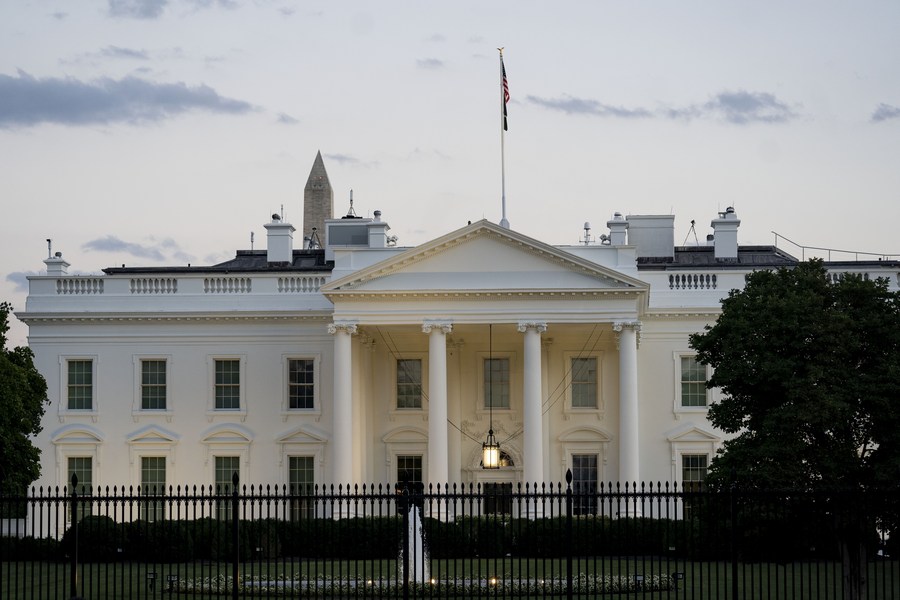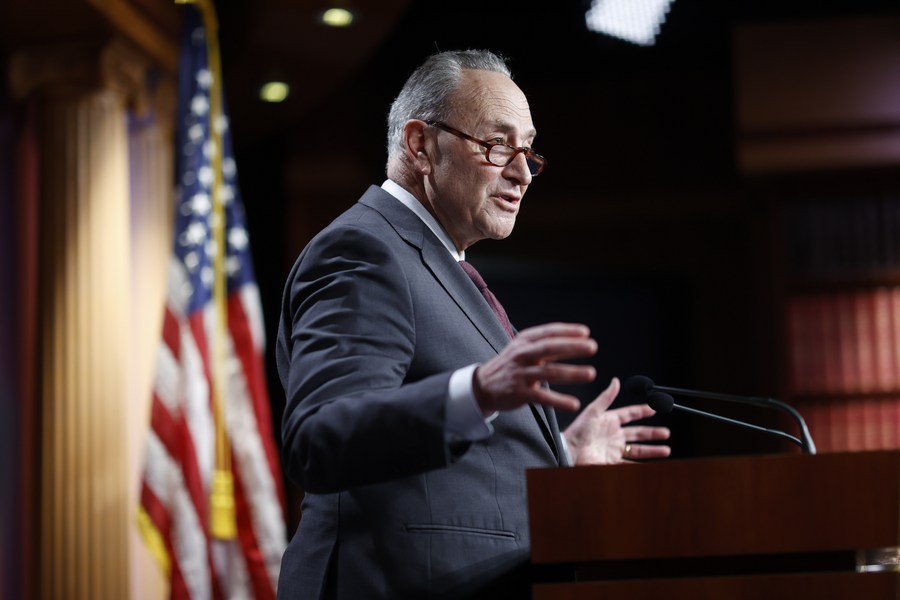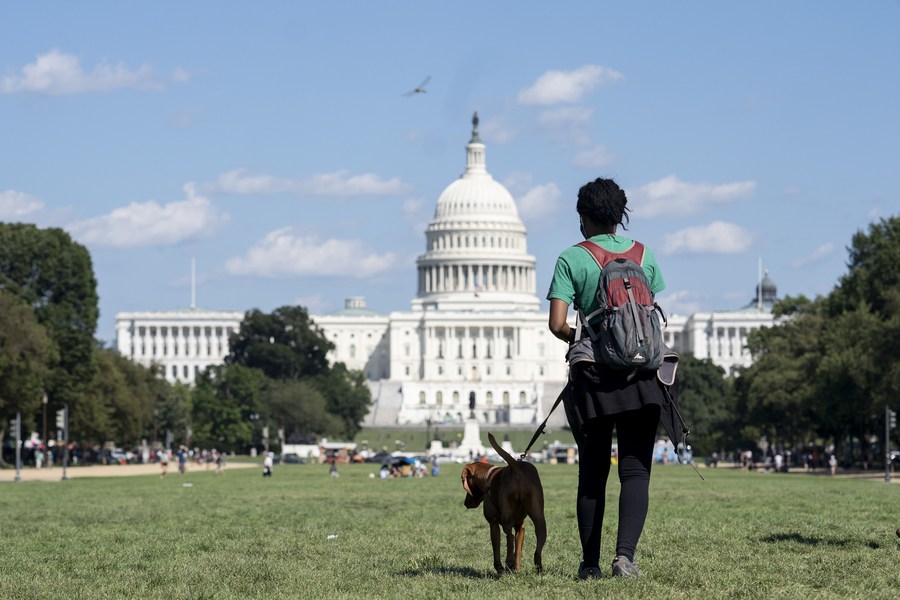Clock ticks toward Friday as U.S. gov't shutdown looms

Photo taken on Sept. 3, 2021 shows the White House in Washington, D.C., the United States. (Xinhua/Liu Jie)
"Ultimately, there will be a continuing resolution that keeps the government open, but there is a lot of posturing now for purely political reasons," Brookings Institution Senior Fellow Darrell West said.
WASHINGTON, Sept. 29 (Xinhua) -- The clock is ticking toward a shutdown of some U.S. government services if Congress does not pass a budget by Friday.
Democrats this week scrambled to extend funding for some federal government operations, in a bid to avoid a shutdown as negotiations with Republicans reached a stalemate amid a bitter partisan divide in Washington.
U.S. President Joe Biden canceled a trip in an effort to focus on budget negotiations amid a tense moment in Washington.
If legislation fails to pass through the House and the Senate by Friday, certain government services could shut down.
The Senate could vote as soon as Wednesday on legislation that would thwart a shutdown, according to Majority Leader Chuck Schumer.
This week saw GOP lawmakers in the Senate block an effort by Democrats to combine an increase in the amount of money the government can borrow - known as the debt ceiling - with government funding.
Democrats argued that the Republicans' move was irresponsible.
The GOP move is forcing Democrats to come up with a plan to fund the government, as the Friday deadline rapidly approaches. If Congress fails to pass a short-term plan by Thursday midnight, certain government services will shut down on Friday.

U.S. Senate Majority Leader Chuck Schumer speaks during a press conference on Capitol Hill in Washington D.C., the United States, Feb. 2, 2021. (Photo by Ting Shen/Xinhua)
House Speaker Nancy Pelosi and Senate Majority Leader Chuck Schumer vowed to extend funding before the Friday's deadline.
"This isn't your typical Washington fracas and it shouldn't be treated as such," Schumer said.
The issue has "far more severe consequences than the typical political catfight," Schumer said.
GOP Senator Bill Cassidy blasted Democrats for combining government funding with a bid to increase the debt ceiling.
"I voted no once it became clear it couldn't pass," he said.
Cassidy said a budget resolution needs to be passed separately from the debt ceiling.
Brookings Institution Senior Fellow Darrell West told Xinhua that each party is "making policy with an eye towards the 2022 elections and trying to position itself in the best possible manner."
"Ultimately, there will be a continuing resolution that keeps the government open, but there is a lot of posturing now for purely political reasons," West said.
"Each side sees the current situation as one that will benefit their party. Democrats want the public to believe Republicans are irresponsible and not committed to effective governance, while Republicans are focusing on the large spending bills and their view that too much money is being spent," West said.
A shutdown would mean many federal government functions would be put on hold until a budget is passed, and some federal workers would be placed on furlough.

A woman walks a dog near the Capitol building in Washington, D.C., the United States, on Sept. 6, 2021. (Xinhua/Liu Jie)
Services considered essential, such as law enforcement or public safety, would continue. Military operations would continue, as would medical care for U.S. veterans, air traffic control and criminal investigations conducted by the federal government. The U.S. Postal Service would also continue its operations.
On the list for suspension would be national parks and certain museums in Washington, D.C.. There would also be delays in passport and visa applications.
Many Americans believe the U.S. government spends far too much.
Kim Bristol, in her 50s and working in information technology in the D.C. area, told Xinhua: "I believe that the government spends money frivolously."
She also questioned why "career politicians live in million dollar houses when they make 200,000 a year."
Carl Richardson, in his 40s and in food management in the D.C. area, told Xinhua he believes the government "spends too much."
Polls show that approval of Congress remains low.
A paltry 27 percent of Americans approve of the job Congress is doing and 69 percent disapprove, according to a Gallup poll released earlier this month.
Photos
Related Stories
- Pumpkins seen at Arboretum's Pumpkin Village in Texas, U.S.
- The backlash of Washington's hegemonic bullying
- U.S. treasury secretary says Congress must raise debt limit by Oct. 18
- Chinese FM stresses three dangers of U.S.-Britain-Australia nuclear-sub cooperation
- Top U.S. general calls Afghan war "strategic failure"
Copyright © 2021 People's Daily Online. All Rights Reserved.










